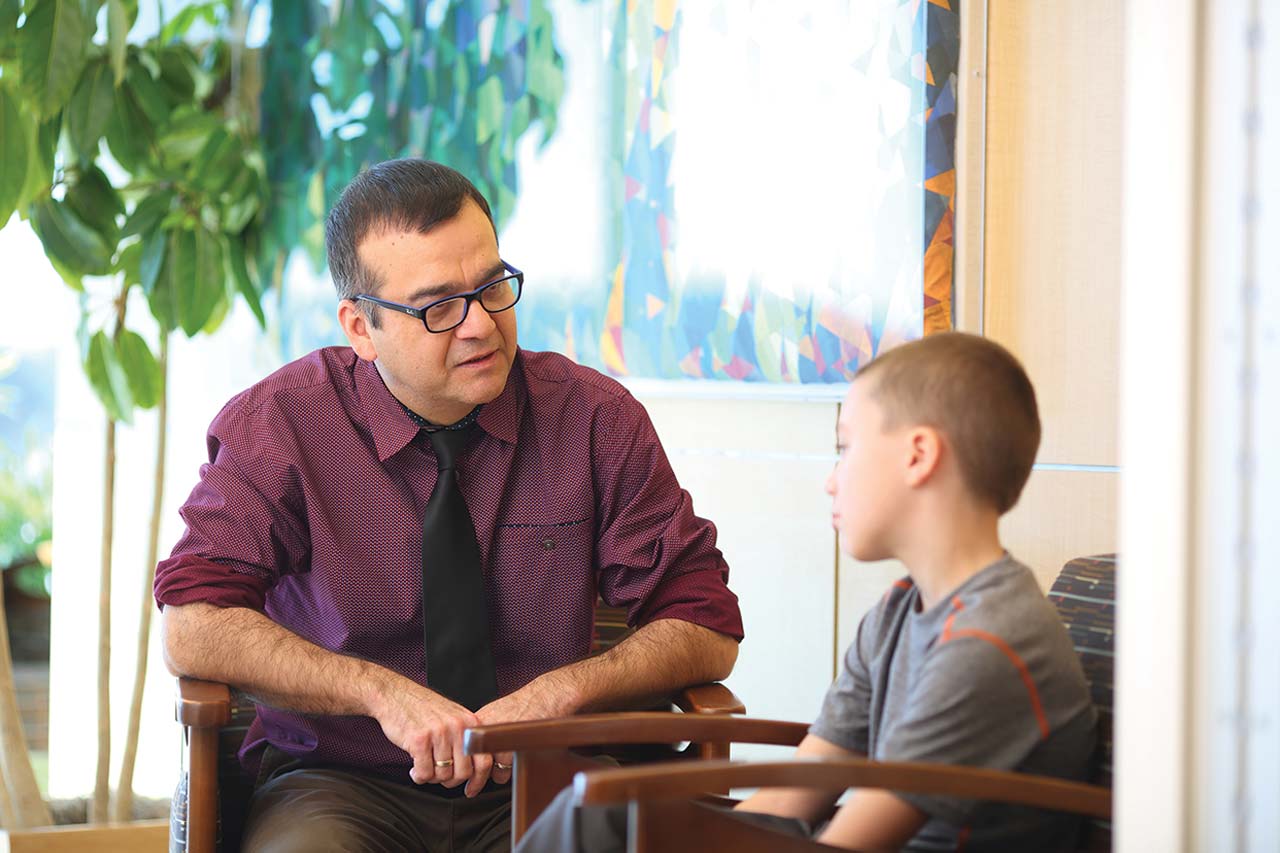PH What’s the best approach to treating children and teens?
NR: Building rapport right away is key. It can be challenging to earn trust with patients who probably did not choose to enter treatment in the first place – generally someone else is guiding that decision for them. The first meeting can influence the entire course of treatment. Communicating that you are acting in their best interest takes experience and training, but it can start by making a connection about a patient’s interests or sharing your own human aspects. Acknowledging distress and explaining that they are not alone can help a great deal. If patients feel that you understand their concerns, they’re more likely to value your insight during treatment.
PH How often do young patients present with co-morbidities?
NR: Very frequently, and it’s one of the most important things to identify right away. Sometimes medical problems can present as psychiatric issues, and that’s where a good screening and assessment process comes in. Eating disorder patients also commonly present with depression, anxiety, or trauma-related disorders, and the co-morbidity must be treated at the same time for recovery to be effective.
PH When does a child or teen with an eating disorder need a higher level of care?
NR: Body weight is a significant indicator; anything less than 90 to 85 percent of ideal body weight may necessitate treatment. (The CEDC is able to care for patients at as little as 55 percent or less of ideal body weight, depending on individual medical parameters.) Candidates for a higher level of care may also include those who are not responding to outpatient or partial hospital treatment, individuals who have a significant weight decline in a short time, those with health issues such as EKG irregularities and electrolyte imbalances, and those who need more supervision and structure to prevent purging behaviors. The earlier an eating disorder is detected and treated, the better.
PH How do parents impact treatment?
NR: I believe that the art of child and adolescent psychiatry is to engage both the patient and the family. The parent or guardian is not your designated patient, yet still plays a critical role in treatment success. With eating disorders, the family generally is struggling a great deal. Our job is to help them understand and actively participate in the recovery process to achieve the best results.
About Dr. Riaz
Najeeb Riaz, MD was named Medical Director of the Center for Eating Disorders Care at University Medical Center of Princeton in the fall of 2016. His extensive experience working with young people includes serving as Chair of the Department of Psychiatry at Newark Beth Israel Medical Center, and as a child and adolescent psychiatrist in locations ranging from Bangor, Maine to Auckland, New Zealand.
Board certified in child and adolescent psychiatry, Dr. Riaz completed his residency at University of Rochester Medical Center and his child and adolescent fellowship at Stony Brook University Hospital.

